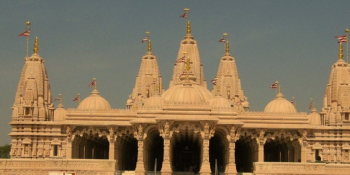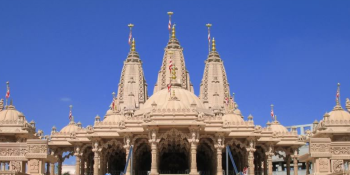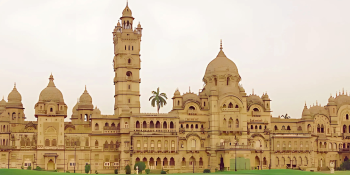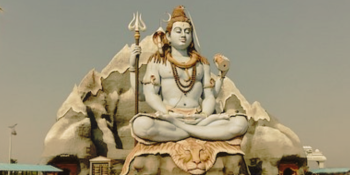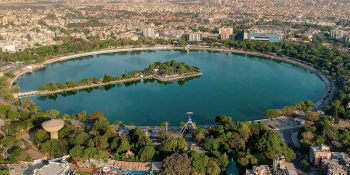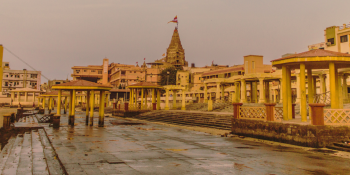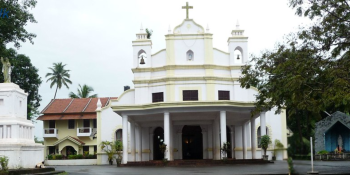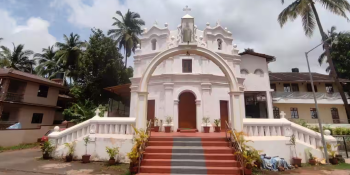The Kashi Vishvanath Temple, located in the sacred city of Varanasi, is one of the most revered and spiritually significant temples in Hinduism. Dedicated to Lord Shiva, the temple is a symbol of faith, devotion, and eternal life, and it holds a unique place in the religious and cultural fabric of India. Varanasi, often referred to as Kashi or the “City of Light,” is considered one of the oldest continuously inhabited cities in the world, and Kashi Vishvanath is the heart of this spiritual city. Exploring the spiritual essence of this temple offers a profound understanding of its sanctity and its role in Hindu spirituality.
The Legend and Religious Importance
Kashi Vishvanath Temple is dedicated to Lord Shiva, who is worshipped here as the Lord of the Universe (Vishvanath). According to Hindu mythology, Kashi is the most sacred city on earth, and those who die here are believed to attain moksha (liberation from the cycle of rebirth). The temple is one of the twelve Jyotirlingas, the holiest shrines dedicated to Lord Shiva, and is considered to be the holiest of them all.
It is believed that Lord Shiva himself chose this spot as his permanent abode, making it a place of immense religious significance. The spiritual belief is that Kashi exists on the trident of Shiva, beyond the constraints of time and space, making it an eternal city. The temple is thus not only a center for prayers and rituals but also a place where one seeks liberation from the cycle of birth and death.
Architecture and Symbolism
The Kashi Vishvanath Temple’s architecture reflects traditional North Indian temple architecture with a towering Shikhara (spire) that is covered in gold. The gold-plated dome, which was donated by Maharaja Ranjit Singh of Punjab in the 19th century, is one of the most iconic features of the temple. The temple’s sanctum sanctorum houses the Shivalinga, which is the main object of worship. Devotees offer water, flowers, and milk to the linga, seeking blessings from Lord Shiva.
Every part of the temple’s structure carries symbolic meaning. The towering Shikhara points towards the heavens, symbolizing the connection between the divine and the earthly realms. The Shivalinga, a representation of Shiva, signifies both creation and destruction, embodying the cyclical nature of life. The temple’s architecture is designed to evoke reverence and a sense of awe, with its intricate carvings and ornamentation emphasizing the power and majesty of the deity.
Spiritual Atmosphere and Rituals
The Kashi Vishvanath Temple is a place where the spiritual energy is palpable. The streets around the temple are filled with the sounds of devotional songs, the ringing of bells, and the chanting of “Har Har Mahadev” (a chant in praise of Lord Shiva). The atmosphere is vibrant yet deeply spiritual, as devotees from all over India and the world come here to offer their prayers and participate in the rituals.
The daily rituals at the temple begin early in the morning with the Mangala Aarti (morning prayers) and continue throughout the day with different ceremonies and offerings. The Ganga Aarti, performed in the evening at the nearby Dashashwamedh Ghat on the banks of the Ganges, adds to the spiritual ambiance. Watching the priests perform this aarti, with oil lamps swaying in synchronization, hymns being sung, and the river glowing with hundreds of floating diyas (lamps), is a mesmerizing experience that connects the physical world with the spiritual.
Significance of Kashi in Hindu Belief
Kashi is not just a geographical location; it is a metaphysical concept in Hinduism. It represents the intersection of life and death, where the divine is ever-present. According to ancient scriptures, Kashi is the city where the five elements—earth, water, fire, air, and ether—are believed to converge, making it a microcosm of the universe itself.
The Kashi Vishvanath Temple, in particular, is seen as the spiritual axis of the city. Hindus believe that visiting this temple and taking a dip in the holy Ganges River, which flows nearby, helps purify the soul and erase past sins. Many devotees come to Kashi in the later years of their lives to attain moksha, believing that dying in this sacred city will break the cycle of reincarnation and grant them eternal liberation.
The Journey of Faith
Visiting Kashi Vishvanath is not just a religious pilgrimage but a journey of faith and self-discovery. The experience of standing in the presence of Lord Shiva, in the heart of one of the most sacred places on earth, is transformative for devotees. It is believed that the divine energy of the temple has the power to awaken one’s inner self, leading to a deeper understanding of life and death.
Conclusion
The spiritual essence of the Kashi Vishvanath Temple lies in its role as a gateway to the divine. Its ancient history, its association with liberation, and its vibrant religious atmosphere all contribute to its status as a major spiritual center. For millions of devotees, a visit to Kashi Vishvanath is an act of devotion, an encounter with the divine, and a step closer to liberation. The temple stands as a timeless symbol of Lord Shiva’s eternal presence, drawing seekers of truth from all corners of the world.

